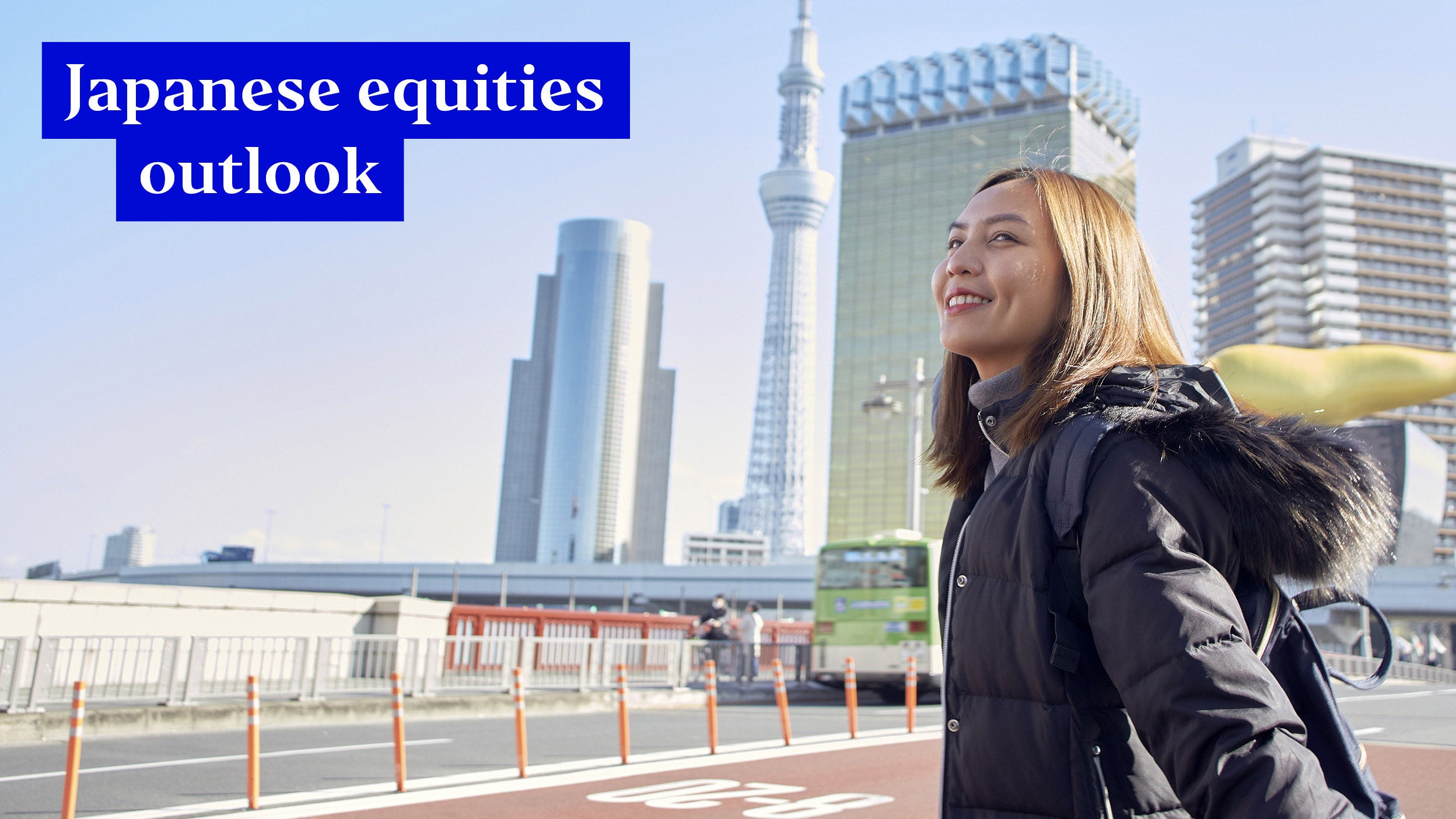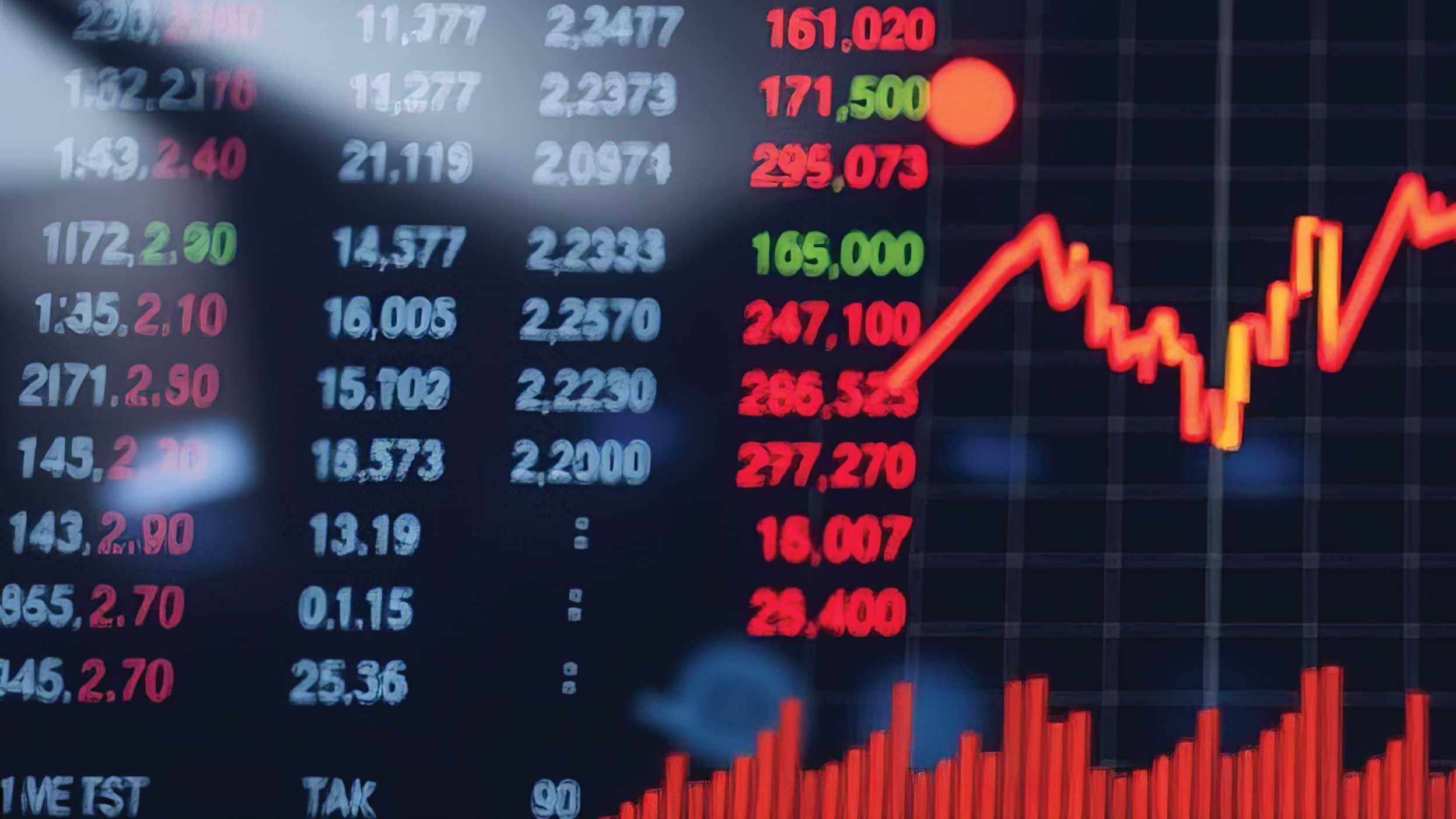
UK equities: Q1 2025 market review and outlook
In this video, fund manager Bethany Shard shares her thoughts on the challenges of the last quarter and her outlook for UK equities.

2021 has been rather eventful for Japan. The Year of the Ox started on a strong note, with the Japanese stock market reaching a 30-year high. However, delays in reopening the economy, combined with concerns over the Tokyo Olympic and Paralympic Games, weighed on the stock market during the summer.
Autumn saw the unexpected arrival of a new prime minister, Fumio Kishida. He defied initial expectations to lead the ruling Liberal Democratic Party to a comfortable majority in the general election, securing political stability within Japan. The domestic equity market responded positively to this news.
With the cloud of macro and political uncertainties now broadly dispersing, we believe Japanese equities will catch up with their global peers in 2022. However, we believe there are other reasons to be more optimistic about Japan right now.
There has been a significant increase in the uptake of Covid-19 vaccines, as well as a decline in new cases. This has led to a gradual reopening of the economy, which should unleash domestic consumer spending. Prime Minister Kishida has made it his priority to reboot the economy, and this year’s stimulus package of several tens of trillions of yen should be a tailwind for the domestic economy. If the prime minister succeeds, his reward may come in the form of another victory in the Upper House election next summer.
Japan should benefit from a post-pandemic resumption in capital expenditure plans globally, given its relatively large exposure to the capital goods sector. We maintain our constructive view on capital investment from a mid- to long-term perspective. The pandemic has sped up digitalisation and automation shifts, and in our view, this should translate to sustained earnings growth - especially among leading factory automation names in Japan.
There’s also the intensifying rivalry between the US and China, with the latter having called for a reconfiguration of the global supply chain system for years. The recent disruptions triggered by the pandemic are forcing manufacturers to rethink supply chains, and this is likely going to be a longer-term trend.
In addition, environmental issues, such as climate change, remain mainstream policies. Environment-related investments and innovations are key areas where both governments and the corporate sector are likely to spend money in the future.
Corporate governance reform remains another secular trend in Japan. The Tokyo Stock Exchange (TSE) is set to reorganise its market segments in April 2022. It sets a higher governance standard for companies that want to be listed on the ‘Prime Market’, which will replace the TSE 1st Section, with the aim of attracting more investors looking for companies with sound governance and sufficient liquidity.
Japanese management has strong reputational incentives for their companies to be listed in TSE 1st Section, and will therefore strive to meet the Prime Market requirements. To be listed within the Prime Market, a company must ensure that independent directors must make up at least a third of a company’s board members. Back in 2015, only 12% of companies would have fulfilled this requirement. However, at this year’s annual general meeting, over 70% of TSE 1st Section companies could tick this box.
Changes are also being made to strategic shareholdings, whereby companies hold minority shares in other companies for the sake of business relations. The Prime Market requirement sets a minimum threshold of a free-float ratio of 35%, where strategic holdings are excluded from the count. An increase in extraordinary gains on securities sales shows progress in unwinding strategic shareholdings (Figure 1).
Source: Company data, data compiled by Goldman Sachs Global Investment Research. As of June 2021.
The restructuring of business portfolios is also accelerating. In the outlook we provided last year, we touched upon the ‘Practical Guidelines for Business Transformations’ laid down by the Ministry of Economy, Trade and Industry (METI) on July 2020. They aimed to complement the corporate governance code to promote efficient capital allocation.
This year’s revised code requires companies ‘to clearly present the basic policy regarding the business portfolio decided by the board and the status of the review of such portfolio’[1] to shareholders. The hesitation by management to pull out of existing businesses, even though they’re unprofitable, has been unwelcome behaviour that impaired capital efficiency. However, these reform measures, combined with the pandemic, have accelerated progress, with announcements of business portfolio restructuring significantly rising in 2020. That pace has been maintained this year (Figure 2).
Source: Nikkei Value Research, data compiled by Goldman Sachs Global Investment Research. Data as at 4 November 2021.
The first-ever Stewardship Code was introduced in Japan in 2014, followed by the Corporate Governance Code in 2015. We’ve been arguing all this time that progress was being made in corporate governance reform.
We’ve witnessed Japanese companies stepping up their efforts to increase capital efficiency and profitability. An undergoing revival in activist investors in Japan could provide evidence that business dynamism in selection and concentration has been set in motion (Figure 3). Activists could act as catalysts for these transformations to increase corporate value further.
Sources: IR Japan. Data as at 2020.
There are leaders who are improving governance and capital efficiencies, but there are also some who lag behind and are resistant to change. We believe it’s critical for active managers to unearth future leaders thorough research and rigorous assessment, capitalising on the rising bottom-up opportunities available.
Looking ahead, we believe the normalisation of unprecedented aggressive monetary measures undertaken by central banks during the pandemic, combined with labour and material shortages caused by economies reopening, will remain a risk factor (higher-than-expected inflation). That said, inflation isn’t necessarily bad for Japan. While the country may have put an end to deflation, it’s still suffering from stubbornly low inflation.

In this video, fund manager Bethany Shard shares her thoughts on the challenges of the last quarter and her outlook for UK equities.

In Q1 2025, Joe Dowling, Fund Manager of Invesco Global Equity Income Fund, discusses key market questions and their implications for the rest of the year.

Stephen Anness, Head of Global Equities, shares some lessons learnt from the previous drawdowns we’ve experienced in order to help investors navigate the ongoing market volatility.